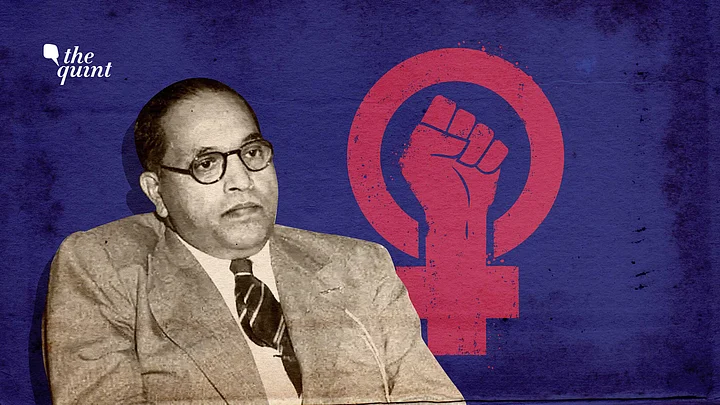“I measure the progress of a community by the degree of progress which women have achieved.”
Dr BR Ambedkar made this statement in a gathering of over 3, 000 women in 1927. In another speech in 1936, to communities of Joginis and Devadasis — who typically belonged to the Dalit community — Ambedkar urged these women to fight the regressive religious practice of offering pubescent girls to gods in temples and become “sexually available for community members”.
He said: “You will ask me how to make your living. I am not going to tell you that. There are hundreds of ways of doing it. But I insist that you give up this degraded life…. and do not live under conditions which inevitably drag you into prostitution.”
Women’s Voting Rights in India Were Thanks to Ambedkar
His statements were powerful. Having a worldview like this in the wake of the 20th century, when India was in the eye of a grave political storm, echoes Ambedkar’s vision for humanity. All human rights are universal, and inclusivity is key — this is something he knew all too well. Therefore, while rightly venerated as the father of the Indian constitution and a champion of Dalit rights, he was also an ardent feminist.
But how often do we remember Ambedkar when it comes to issues concerning women’s empowerment? Over 75 years of India’s independence, his work has been used only to fulfil political motives. So, today, as we celebrate Ambedkar’s 129th birth anniversary, there is a need to recognise his contributions in shaping the course of the modern Indian feminist movement, because it was both radical and inspirational — and looked far beyond its times.
He wanted women to have greater participation in all walks of life, especially in the political arena. To empower that, as a legislator under the British regime, he was one of the first people to root for the rights of working women.
To that effect, he wrote extensively on women’s oppression and set up newspapers like ‘Mook Nayak’ and ‘Bahishkrit Bharat’ with sections that exclusively covered women-centric issues.
Moreover, as British India's first Indian Law Minister, Ambedkar pushed for family planning measures for women, and ensured the enactment of universal adult franchise, thereby legalising voting rights (earlier reserved only for the privileged) for women and several other minorities and marginalised people.
Ambedkar’s Role in Enabling Indian Women to Have Full Property Rights & Right to Divorce
His legislations were intended to provide agency to women through freedom of choice, which in turn led to empowerment. One of his most important contributions towards the cause of women empowerment was the introduction of the Hindu Code Bill, which accurately reflected his idea of equality and his concern for the women of India. Through the bill, women — who were earlier not allowed to sell property while they were alive, and after her death, her property would go to someone in her husband’s family — were granted ‘absolute right’ in matters of property.
Ambedkar made a revolutionary change in this matter by insisting that this ‘partial estate’ be converted into ‘absolute estate’, one that a woman could do with as she willed.
The fact that Dr Ambedkar envisioned true gender equality can be understood by his own words when he said, “A son also would get a share as equal to a girl’s share in the mother’s property.”
Apart from reforming property rights, he also introduced two ground-breaking clauses — namely, the restitution of conjugal rights, and judicial separation. These allowed women the personal choice and freedom to file for legal divorce.
The bill was divided into four independent acts:
- the Hindu Marriage Act, 1955, which gave women the right to divorce, and maintenance in some cases
- the Hindu Succession Act, 1956, which gave them the legal right to inherit family property
- the Hindu Adoption and Maintenance Act, 1956, which allowed women to legally adopt a child
- the Hindu Minority and Guardianship Act, 1956 which allowed a woman to be the natural guardian of her child
How Ambedkar Envisioned an Equal Society for All
His influence also led to the passage of various other pro-women acts like The Equal Remuneration Act, 1976, and The Dowry Prohibition Act of 1961, legally entitling women to equal wages and criminalising dowry, respectively.
Today, when women continue to be subjected to sexual abuse, assault, emotional abuse, etc, it becomes even more important to remember Ambedkar’s principles.
Ambedkar desired a society based on liberty, fraternity and equality for all. Feminism at its core advocates for full social, economic, and political equality for women. In my view, Ambedkarism is Feminism.
(Devika is a full-time public affairs professional and part-time freelance journalist. She can be reached @deviksS13. This is an opinion piece, and the views expressed above are the author’s own. The Quint neither endorses nor is responsible for the same.)
(At The Quint, we question everything. Play an active role in shaping our journalism by becoming a member today.)
